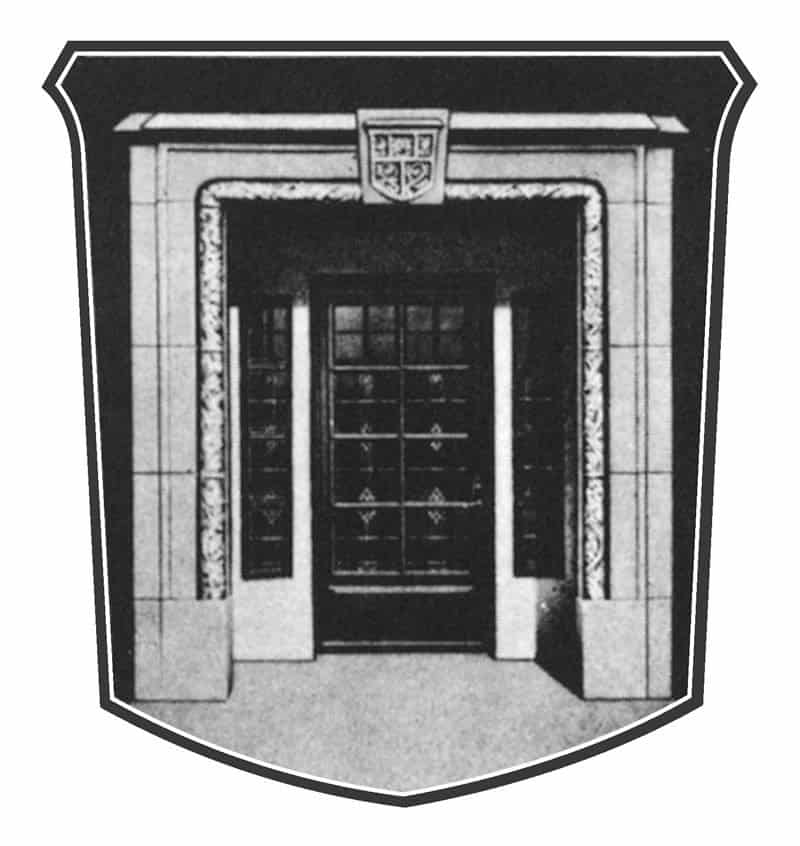By the Lee Foundation for Nutritional Research
 Summary: Some talking points on the role of various nutrients in the prevention and treatment of cancer, including vitamins A and C, iodine, chlorophyll, and specific factors in the vitamin B complex such as choline, inositol, and betaine. Complete with references. Published by the Lee Foundation for Nutritional Research, 1949.
Summary: Some talking points on the role of various nutrients in the prevention and treatment of cancer, including vitamins A and C, iodine, chlorophyll, and specific factors in the vitamin B complex such as choline, inositol, and betaine. Complete with references. Published by the Lee Foundation for Nutritional Research, 1949.
The following is a transcription of the original Archives document. To view or download the original document, click here.
Cancer—Nutritional Factors In
I.
- Vitamin A deficiency causes cell changes similar to those preceding cancer.1
- Vitamin A is present in subnormal amounts in the liver of cancer-susceptible animals.2
- Vitamin A administration improves cancer in human cases after operation or [treatment with] X-rays, and test animals are rendered immune to tar cancer by being fed vitamin A.3
- The ability of the liver to convert carotene to vitamin A depends on the action of vitamin C. In cancer [patients] the vitamin C requirement is “conspicuously increased.”4
II.
- Cancer patients have a high blood cholesterol and a high urinary cholesterol.
- The vitamin B factors that reduce blood cholesterol and promote its elimination (i.e., the “lipocaic” group), and barley extracts, have cured cancer in test animals.5
- Rice bran extract prevented Butter Yellow from causing cancer in test animals.6
III.
- Cell determinants collect in connective tissue, and in time they reach toxic proportions—after the age at which the endocrine eliminators become less effective. The spontaneous development of a malignancy depends on the presence of these toxins, and mechanical irritation or chemical agents of certain types will then bring on cancer.7
- The value of iodine in preventing cancer8 is no doubt a result of its effect of promoting the physiological elimination of determinant toxins.
- The value of vitamin A in preventing cancer is probably a result of its effect in promoting the physiological insulation of the lipoid wrapping of determinants.
- The effect of the vitamin B factors in preventing cancer is probably the result of their synergistic effect of promoting cholesterol transport and elimination, thereby increasing tissue permeability [and thus] permitting antibody reactions that otherwise would be blocked. The cancer to be considered as a foreign protein attacked normally by an antibody that would promote its lysis and elimination [sic]. If antigenic factors could not diffuse away from the cancer, no antibodies would be formed. The cancer in that case would be permitted to grow undisturbed.
- The general effect of all cholesterol metabolizers as cancer inhibitors is thereby explainable. These [inhibitors] may be listed as follows:
1. Chlorophyll.
2. The lipocaic, or fat-metabolizing, group—otherwise known as transmethylators. These include betaine, choline, inositol, and some amino acids, such as methionine and cystine. (Found in beet and cane molasses.)
3. Unidentified factors in cereals—probably the active principle in barley water, rice, and buckwheat that reduces blood pressure and no doubt promotes the diffusibility of antigens as well.
By the Lee Foundation for Nutritional Research. The Lee Foundation for Nutritional Research, Reference Card 2-49, 1949.
References
1. Zwick. Med. Bull. Univ. of Cincinnati, November 1935.
2. Goerner. “Vitamin A & Liver Cell Tumors,” Jol. Biol. Chem., 128, 2:559–565, May 1939.
3. Chidester. Med. World, 56, 4:246–250, April 1938.
4. Stepp, Kuhnau, and Schroeder. The Vitamins and Their Clinical Application, p. 74. Vitamin Products Co., 1939. (Translation from the German.)
5. Science News Letter, June 19, 1943, p. 393 (reporting on work of Drs. Laszlo and Leuchtenberger); Salmon and Copeland. Science News Letter, October 26, 1928.
6. Cancer Research, Vol. 1, No. 1, p. 3.
7. Lee and Hanson. Protomorphology. Lee Foundation, 1947. (Contains bibliography and discussion.)
8. Chidester. Nutrition and Glands in Relation to Cancer. Lee Foundation, 1945.
Reference Card 2-49
Lee Foundation for Nutritional Research
Milwaukee 3, Wisconsin


